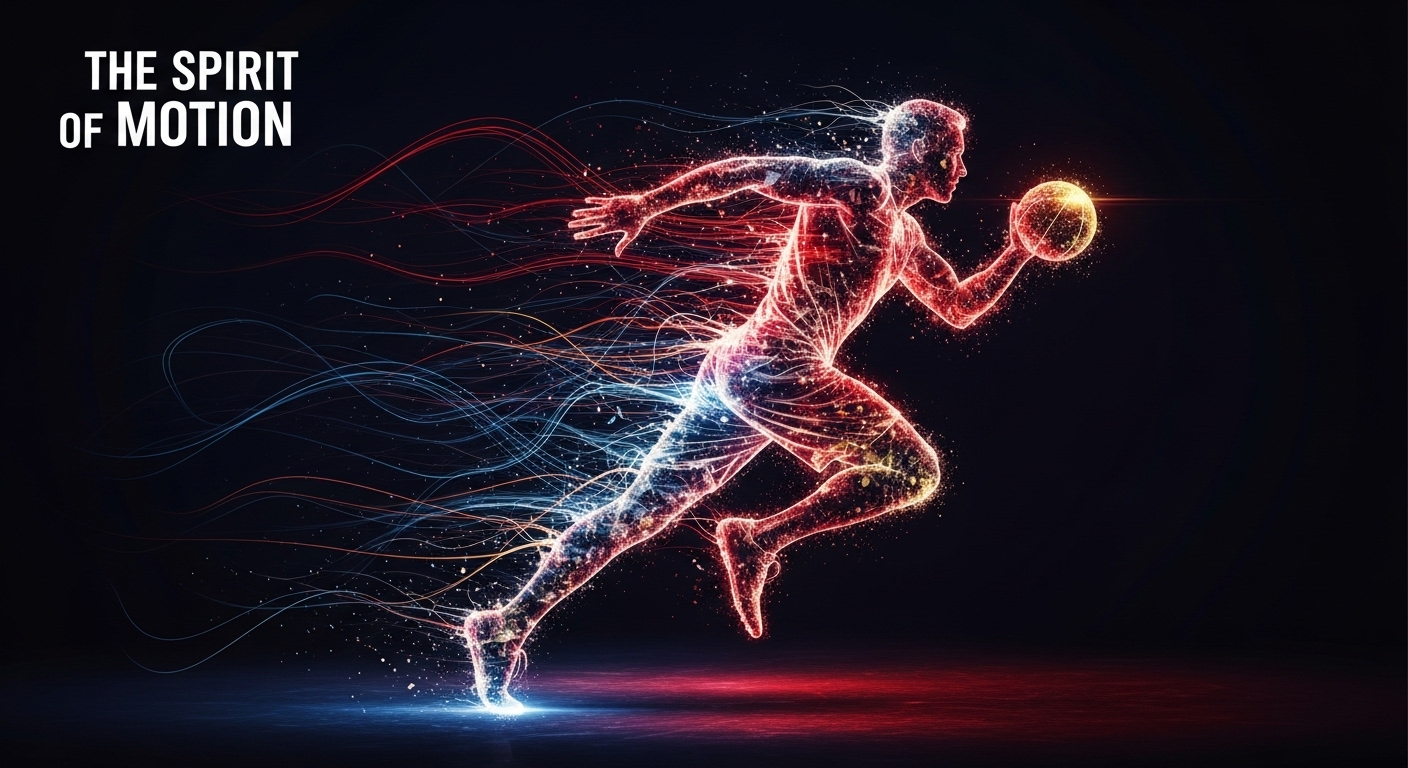Introduction: The Universal Language of Sports
Sports transcend language, politics, and geography. They are a universal phenomenon that unites people across borders, backgrounds, and beliefs. From the packed stadiums of football in Brazil to the cricket-crazed streets of India, and from the Olympic arenas to local school fields, sports play a central role in shaping human interaction and personal identity. While scores, trophies, and victories often dominate headlines, the true value of sports lies far beyond the scoreboard. It lies in their ability to connect, inspire, teach, and transform lives and societies.
A Historical Perspective: The Roots of Sporting Culture
Sports have been an integral part of civilization since ancient times. The Olympic Games of ancient Greece were not just athletic contests but deeply cultural and religious events that reflected the values of the time. Gladiatorial contests in ancient Rome, though brutal, showcased endurance and skill. Indigenous sports like lacrosse in North America and wrestling in Africa were not only competitive but also ceremonial and tribal.
These early sports were often rooted in rituals and traditions, and they played a role in preparing warriors for battle, resolving conflicts, and bringing communities together. As societies evolved, so did their sports, gradually developing into structured forms of competition with codified rules and organized events.
Modern Sports: More Than Just a Game
In the modern era, sports have become global industries. They are entertainment, business, culture, and diplomacy all rolled into one. Massive global events like the FIFA World Cup, the Olympics, Wimbledon, and the Super Bowl attract billions of viewers. These spectacles generate enormous economic activity through sponsorships, media rights, merchandise, tourism, and infrastructure development.
However, beyond the business side, sports serve deeper societal functions. They promote physical health, mental well-being, discipline, teamwork, and resilience. They provide youth with structure, dreams, and sometimes even an escape from poverty or violence. Athletes are not just competitors; they are role models, symbols of hope, and ambassadors of change.
The Psychology of Sports: Building Character and Confidence
One of the most important impacts of sports is psychological. Participation in sports, especially from a young age, has been linked to increased self-esteem, better emotional regulation, and improved academic performance. The structured environment of sports fosters goal setting, accountability, and leadership.
Losing, though often painful, teaches humility and resilience. Winning cultivates confidence and the understanding of hard work. Team sports enhance social skills, communication, and empathy. Even solo sports instill discipline, focus, and self-reliance.
Many life lessons are learned through sports: the importance of preparation, the necessity of sacrifice, the value of persistence, and the power of belief.
Sports and Identity: A Deep Personal Connection
Sports can become part of who we are. A person may define themselves as a footballer, a runner, a tennis fan, or a supporter of a particular club. These identities shape how people dress, how they spend their time, and even how they relate to others.
For fans, supporting a team can become a lifelong commitment, passed down through generations. Wearing team colors, chanting in unison, and celebrating victories feel deeply personal. For players, the journey of becoming an athlete can define their entire worldview, influencing their friendships, careers, and personal values.
National sports can also become symbols of cultural pride. Rugby in New Zealand, sumo wrestling in Japan, and ice hockey in Canada are more than just games — they are cultural expressions. A national team’s success can uplift an entire country and become a shared moment of unity and joy.
Women in Sports: Breaking Barriers and Making History
Historically, women have faced significant barriers in accessing and excelling in sports. Gender stereotypes, lack of funding, limited media coverage, and social expectations often limited female participation and recognition.
However, in recent decades, women in sports have made remarkable progress. Icons like Serena Williams, Simone Biles, Megan Rapinoe, and P.V. Sindhu have not only achieved greatness in their respective fields but have also become powerful voices for equality, justice, and empowerment.
Women’s sports leagues, such as the WNBA and professional women’s football leagues, continue to grow in popularity and legitimacy. Grassroots movements encourage girls to participate in sports from a young age, challenging outdated norms and building confidence and leadership.
While there is still progress to be made in terms of equal pay, representation, and sponsorship, the future of women in sports looks increasingly strong and unstoppable.
The Role of Technology in Modern Sports
Technology has revolutionized sports in countless ways. From video analysis and wearable trackers to AI-driven training systems and virtual reality simulations, athletes and coaches now have access to tools that were unimaginable a few decades ago.
Referees and officials use technology for instant replays and decision-making accuracy, as seen in systems like VAR in football or Hawk-Eye in tennis. This improves fairness and reduces controversy, though it also introduces debates about human judgment versus machine precision.
For fans, technology has enhanced the viewing experience with high-definition broadcasts, interactive apps, fantasy leagues, and real-time statistics. Social media connects fans directly to athletes, creating new forms of engagement and fandom.
Training methods have become more scientific, using biomechanics, nutrition tracking, and injury prevention protocols. As a result, athletes are performing at higher levels and breaking records that once seemed unbeatable.
Sports and Social Change: Using the Platform for Good
Athletes today are more than just performers — many are activists and influencers with global reach. The sports arena has become a platform for raising awareness, challenging injustice, and sparking social movements.
Colin Kaepernick’s decision to kneel during the national anthem was a powerful statement against racial inequality. Muhammad Ali’s refusal to be drafted into the Vietnam War marked him as both a sporting legend and a political icon. Athletes have spoken out about mental health, LGBTQ+ rights, climate change, and gender equality.
Sports organizations are also becoming more socially responsible. Campaigns to promote diversity, inclusion, and mental well-being are increasingly visible. While not all activism is without backlash, the impact of using sports as a force for good cannot be underestimated.
Youth and Grassroots Sports: Building Future Champions
Elite athletes often begin their journey on dusty playgrounds, community pitches, or school courts. Grassroots sports are the foundation of national and international success. More importantly, they offer everyday children the chance to grow physically, mentally, and socially.
Programs aimed at youth development through sports are essential in fostering talent, reducing juvenile delinquency, promoting health, and encouraging social inclusion. Local clubs and school teams are breeding grounds for both skill and character.
Investing in sports infrastructure at the community level ensures that talent from all backgrounds can be discovered and nurtured. The dream of becoming a professional athlete is born in these early experiences, but even those who never go pro carry the benefits of sports into their adult lives.
Globalization of Sports: A World Without Borders
Today, sports transcend national borders like never before. Athletes compete internationally, fans support teams from countries they’ve never visited, and leagues attract global audiences.
The English Premier League, for example, boasts fans on every continent. Basketball is as popular in China and Europe as it is in the United States. Cricket is no longer limited to Commonwealth nations but is expanding to newer territories.
The global exchange of players, coaches, and ideas enriches the sporting world and creates a shared global culture. Sports diplomacy can even thaw international tensions, as seen in events like the Olympics, where nations come together under a banner of peaceful competition.
Challenges in Sports: Doping, Corruption, and Commercialization
Despite its many positives, the world of sports faces serious challenges. Doping scandals have tainted the legacies of top athletes and raised questions about integrity. Governing bodies must enforce strict testing and ethical standards to preserve the credibility of competition.
Corruption and match-fixing have also threatened the purity of the game. Whether it’s in major football leagues or smaller tournaments, financial manipulation undermines the trust that fans and players place in fair competition.
The increasing commercialization of sports has brought enormous wealth but also created disparities. Young athletes can face immense pressure to perform, often at the cost of their mental health. The focus on profit can sometimes overshadow the spirit of the game.
Conclusion: Why Sports Will Always Matter
In a rapidly changing world, where technology, politics, and society are in constant flux, sports remain a constant source of passion, unity, and meaning. They remind us of our shared humanity — of the joy of play, the thrill of competition, the pain of loss, and the glory of triumph.
Whether on a professional stage or in a neighborhood park, sports bring people together. They tell stories of courage, perseverance, redemption, and transformation. They shape who we are as individuals and as communities.
And as long as people dream, strive, and compete, sports will continue to thrive — not just as games, but as essential expressions of the human spirit.



